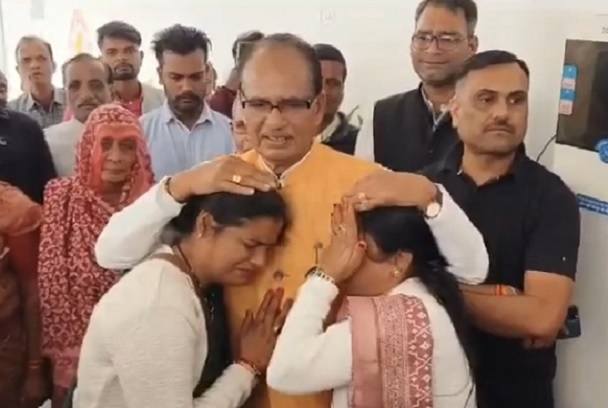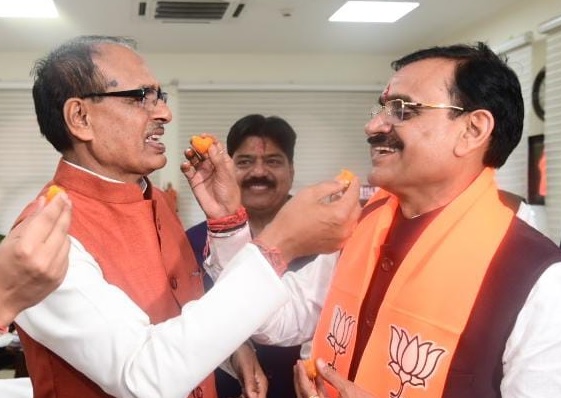Evolving jurisprudence on commuted pension and a shift towards pensioners’ rights in India

Shahid P Sayed
NewsBits.in
MUMBAI: The issue of commuted pensions has gained significant attention in recent times, with several cases pending before various courts across India.
As someone actively involved in addressing these challenges, I have witnessed first-hand how pensioners are often left struggling due to out-dated and unfair policies.
Even in cases where large petitions, like the 808 writ petitions, were dismissed by the Punjab and Haryana High court High Court, the state government’s decision to self-examine its commuted pension policy and establish an expert committee is a step in the right direction.
Pension is not a privilege but a right—deferred wages for years of hard work and service. The Supreme Court’s landmark judgment in D.S. Nakara v. Union of India (1983) affirmed that pension is a social welfare measure, essential to ensure the dignity of life under Article 21 of the Constitution. This principle remains the cornerstone of pension jurisprudence. Yet, in practice, pensioners are often deprived of what is rightfully theirs due to administrative inefficiencies, rigid policies and empathy on the part of various State /Central agencies.
Eknath Shelke VS State of Maharashtra, OA 936/2024 , MAT Aurangabad
I had the opportunity to represent the grievances of pensioner Eknath Shelke who retired from the PWD in 2012 in OA 936/2024, where we brought to light some of the core issues plaguing the commuted pension system.
Shelke had commuted 40% of his pensions and received 4,31,000 in 2012 and were supposed to pay Rs 4300/month for 15 years. By October 2024, Shelke had not only paid the principal amount of 4,31,000 but also interest of Rs 1,87,000 for a total of 6,16,000.
In this case, I argued that the state’s failure to revise commuted pension amounts in line with inflation and subsequent pay revisions was not only unfair but also a violation of pensioners’ fundamental rights.
The hardship faced by retired individuals like Shelke, many of whom rely solely on their pensions, is a stark reminder of the urgent need for systemic reforms. I also submitted that the State Government is not in the business of Banking and financial services and its mission is not to maximize profit from the vulnerable section of the society.
Justice V.K. Jadhav agreed with our submission and granted a stay on recovery amount of 4300 that is taken from the account of Eknath Shelke till the final order. In granting the interim stay, Justice Jadhav emphasized the need to address the pensioners’ vulnerability amidst rising living costs and inflation.
The decision also reflects the Tribunal's acknowledgment of the inequities caused by prolonged recovery periods and suggests that the matter requires detailed judicial scrutiny.
Flaws in the Commuted Pension System
From my experience and observations, several key issues need to be addressed:
1. Unreasonable Recovery Periods: Pensioners are often required to repay the commuted amount over 15 years periods that extend far beyond what is reasonable, creating unnecessary hardship.
2. Lack of Periodic Revisions: The commutation amount does not account for rising inflation or pay revisions, leading to financial imbalance.
3. Inconsistent Policies: Disparities between central and state government pension policies cause inequitable treatment among pensioners.
The High Court’s Decision and State Government Response
The dismissal of 808 writ petitions by the Punjab and Haryana High court challenging similar pension policies was undoubtedly a setback for many. However, I see a silver lining in the state government’s subsequent decision to re-examine the commuted pension policy and form an *expert committee* comprising all stakeholders. Such committees are essential because they provide a platform for pensioners, financial experts, and legal minds to address the systemic flaws.
This decision, in my opinion, reflects a growing acknowledgment that pensioners are not merely beneficiaries but citizens whose rights and dignity must be protected. The willingness to engage stakeholders signifies an important shift toward transparency, fairness, and administrative accountability.
In addition the State Governments of Kerala, Andhra Pardesh and Gujarat have already reduced their recovery period from 15 years to 12/13 years which further confirms the state Government acknowledgement that the present system for the retirees is broken and needs an overhaul.
The Need for Reform
Through cases like OA 936/2024, we firmly believe that the way forward requires:
1. Fair Recovery Mechanisms: Recovery of the commuted amount must adhere to clear and reasonable timelines; ensuring pensioners are not unduly burdened.
2. Automatic Revisions: Commuted pensions must be revised periodically to align with inflation and pay commission recommendations.
3. Uniform Policies: Disparities between central and state government pension rules must be resolved to ensure equity.
4. Stakeholder Representation: Pensioners must have a voice in policy reforms to ensure their needs and concerns are addressed effectively.
The commuted pension issue represents more than just a financial challenge—it is a question of dignity, fairness, and justice for those who have dedicated their lives to public service.
My involvement in cases like OA 936/2024, Eknath Shelke V State of Maharashtra has strengthened our resolve to advocate for pensioners' rights and hold authorities accountable.
While the dismissal of 808 writ petitions by the Punjab and Haryana High Court was disheartening, the subsequent formation of an expert committee is a step toward reform.
I remain hopeful that the evolving jurisprudence will continue to protect pensioners’ interests and ensure that pension policies are rooted in principles of fairness and equity.
For pensioners, the fight is not just about numbers; it is about securing their rightful place in a system that must honor their years of service. I am committed to this cause and will continue to push for reforms that prioritize justice and financial security for our retired citizens.
The Eknath Shelke VS State of Maharashtra, on pension recovery in OA 936/2024 is pending before MAT, Aurangabad and the advocates for the petitioner are Adv Sarode Eknathrao and Adv Shahid Parvez Sayed.









